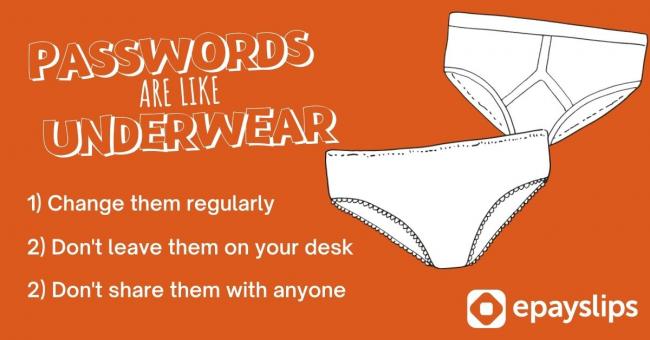
The humble password. Despite being the sole key to your security whilst online (for those not using Multi-Factor Authentication (MFA)), the art of a great password is still overlooked by many, at their peril!
National Password Day originally came from dedicating a day annually to change all of your passwords. Over 80% of all data breaches are attributed to weak passwords. Though only around 33% of us can confidently say we change our passwords at least once a year, and 60% admit to the heinous act of using the same password for multiple accounts.
Though we still have to rely on passwords as a part of everyday life online and the least we can do is ensure we chose a password fit for purpose. Here are five tips to help you choose a secure password.
Don’t use the same password across multiple websites
This is a big one for your security online, as obviously once your password is broken on one account, the hacker has access to all of your accounts.
The longer, the better
At a minimum, where possible, your password should be 10 characters long. Every additional character from this point extends the length of time it takes for your password to be cracked dramatically. Provided you haven’t fallen into any traps your password should be safe 10 characters and up.
Another suggestion is that using a ‘passphrase’ is often better than a ‘password’. A bad example of a passphrase that we wouldn’t recommend using is ‘thisisanexampleofmypassword’, rather than ‘password’.
Use special characters, uppercase and lowercase, and numbers
Thankfully, this is a minimum requirement for passwords on websites that house sensitive information nowadays, though it’s worth maintaining this practice across all websites, including those not required to be on the safe side.
Activate MFA
We at ePayslips believe Multi-Factor Authentication is the future of password security online. With the requirement of confirming your identity externally (via a smartphone app, facial recognition or a single-use text code), MFA acts as a huge deterrent to hackers.
The Golden Rule
STAY AWAY from the classics: ‘Password’, ‘qwerty’, ‘1234567890’, ‘asdf1234’ and so on. These passwords take hackers less than a second to crack. This is as good as bypassing the password feature altogether, offering no security.
A message we give out to staff (and that appears as posters in our toilets is)
Passwords are like underwear
… Change them regularly
… Don’t leave them on your desk
… Don’t share them with anyone

